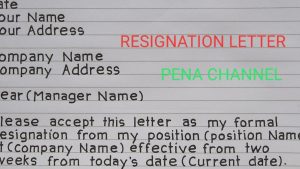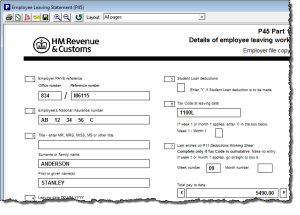There are various reasons why employees end up resigning ahead of a claim. In writing a resignation letter to state that you are alleging constructive dismissal, the tone must be polite, clear and professional at all times. A letter should set out the facts clearly, avoiding emotive, impulsive or inappropriate language. Of course, if you resign amicably, it is a good idea to thank the employer for the opportunity and you can even add a note into the letter, stating how much you have enjoyed the role.
What is constructive dismissal and are there any examples?
Constructive dismissal describes a situation in which an employee is forced to leave their job involuntarily due to poor employer conduct. These reasons for leaving the role must be serious, and apply to incidents such as non-payment of salary, allowing bullying or harassment to occur, health and safety breaches or demoting the employee with no explanation. A reduction in salary, removal of contractual benefits such as a pension or a company car, making unreasonable changes to a place of work or forcing a day worker onto night shift may be further valid reasons for a claim for constructive dismissal.
Is it difficult to prove constructive dismissal?
Constructive dismissal can be difficult to prove, but that doesn’t mean you should give up in your pursuit of justice. A claimant can be successful and with the evidence, you may even be in a position where you can resolve the problem without having to leave the job you have worked so hard to secure.
A constructive dismissal claim can be stressful, lengthy and time-consuming but with the right help, you can achieve what you set out to do. Employees wishing to pursue a https://www.employmentlawfriend.co.uk/constructive-dismissal constructive dismissal claim can get help from a range of professionals who are skilled and experienced in these matters. According to People Management there are reasons where a dismissal is legal and appropriate. The article suggests that the reason for dismissal in the case of sickness will usually be ‘capability’ if related to long-term absence. However, it is important to note that a fair procedure must be followed at all times.
What should a resignation letter contain?
It’s important to clearly explain the reasons in writing for your resignation. You do not have to go into the finer details and it can be short, clear and concise. The letter should, however, contain a statement to inform the management that you are resigning due to a serious breach of contract, and that you deem yourself constructively dismissed. Remember to include the exact reasons for the resignation and explain the impact that the employer’s behaviour has had on you, avoiding emotive language.

Put in writing the notice that you are giving the company and add the date of the final day of your employment. You can note that you are due a salary or expenses and you can explain that you will return company equipment. You can add that you would appreciate the final payslip and P45 being sent to your home address. Always sign and date the letter with your name in clear writing. The letter should be tailored to fit your situation and you should avoid simply using a resignation letter template from a website since no two cases will be the same.

Final thoughts on a constructive dismissal situation
For a resignation to qualify as constructive dismissal, it’s essential that you demonstrate that the breach was serious enough to justify ending the employment contract, and that the behaviour by the employer resulted entirely in your resignation.

